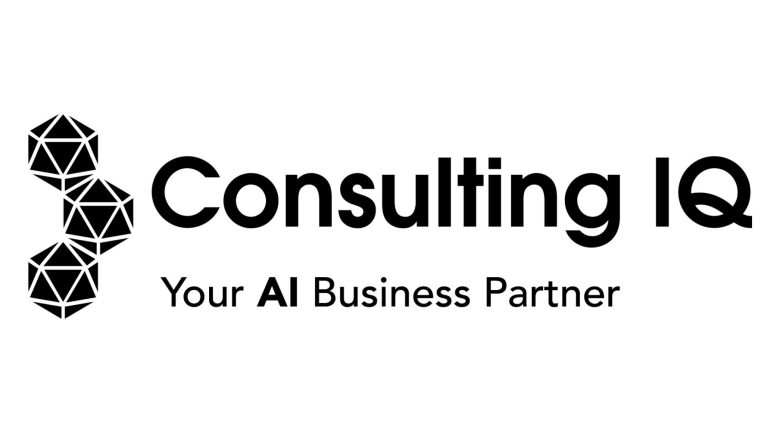July 1–July 8, 2025
The first week of July 2025 was packed with notable developments in the rapidly evolving world of artificial intelligence, showcasing how deeply embedded AI has become in global politics, business, creative industries, and cybersecurity. Across sectors, we are witnessing AI’s dual role as both a powerful driver of innovation and a source of regulatory, ethical, and operational challenges.
In the U.S., the Senate decisively rejected a proposed 10-year ban on state-level AI regulation, dealing a blow to Big Tech and affirming states’ rights to oversee AI’s impact on their citizens. Meanwhile, startups and enterprises continued pushing boundaries—from Moonvalley’s artist-focused AI filmmaking platform to Saifr’s compliance tools for insurers and Emerald AI’s grid-aware data center orchestration. Small businesses also continued their embrace of AI, enhancing customer service, streamlining hiring, and boosting productivity.
Globally, the UK called for a refocus of its leading AI institute on defense and national security, while the NY Post uncovered an AI-powered scam involving the impersonation of a U.S. official. Researchers warned of new cybersecurity risks posed by AI even as organizations invested heavily in its potential. This week underscores both AI’s promise and its perils, and the urgent need for thoughtful governance, innovation, and education in this transformative field.
1. Senators Reject 10-Year Ban on State-Level AI Regulation, In Blow to Big Tech
TIME
Published: July 1, 2025
Summary: In a decisive bipartisan move, the U.S. Senate voted 99-1 to reject a provision in President Trump’s “One Big Beautiful Bill” that would have imposed a 10-year moratorium on state-level regulation of AI. The controversial clause, supported by major tech firms like OpenAI and Google, aimed to prevent what they saw as a fragmented regulatory landscape that could stifle innovation. However, critics across the political spectrum argued that the moratorium was a veiled attempt to avoid meaningful oversight, especially given the federal government’s inaction on tech regulation in recent years.
Senator Marsha Blackburn of Tennessee led the amendment to strip the moratorium, citing concerns about the unchecked power of Big Tech and the need for states to protect citizens, especially children, in the absence of comprehensive federal legislation. Despite previously co-authoring a five-year version of the ban, Blackburn ultimately opposed it entirely. AI safety advocates and Democratic lawmakers applauded the vote as a stand against corporate overreach. The provision was originally tied to a $500 million infrastructure program to satisfy budgetary rules. With the Senate’s decision, the broader tax and spending bill moves forward without the AI provision, targeting President Trump’s July 4 signing deadline.
Read article here
2. This New AI Tool Wants to Work With Filmmakers—Not Replace Them
TIME
Published: July 8, 2025
Summary: Moonvalley, an AI startup founded by former DeepMind researchers, has launched Marey, a professional-grade, fully-licensed video generation model aimed at supporting rather than replacing filmmakers. With ties to the film industry through its AI film studio Asteria Film Co.—co-founded by Natasha Lyonne and Bryn Mooser—Moonvalley positions Marey as an artist-centric tool. Unlike traditional black-box AI models, Marey allows creators to input, tweak, and control visual elements in a granular and iterative manner, akin to modern VFX workflows. Marey is trained on licensed footage from independent filmmakers and agencies, making it more ethically sound and legally secure than competitors. The model supports cost-effective production, charging $1–$2 per scene render, and is currently being tested by major studios and advertisers. While some filmmakers like Ángel Manuel Soto praise Moonvalley’s ethical approach, others remain wary, citing concerns over job loss and the potential for studios to prioritize cost-cutting over creative integrity. Moonvalley has raised over $100 million in venture capital and is using Marey in real-world projects like a Carl Sagan documentary. CEO Naeem Talukdar emphasizes that their goal is to expand creative capacity, not reduce human involvement.
3. AI Applications for Small Business: How AI Is Changing the Workplace
AllBusiness.com
Published: July 2, 2025
Summary: This article explores how AI is transforming small businesses, making them more efficient and competitive. It highlights the significant increase in AI adoption among small and medium-sized businesses (SMBs), with nearly 39% now leveraging AI technologies.
The article also discusses the role of AI in enhancing customer interactions through personalized marketing, AI-powered chatbots, and real-time customer support tools. Additionally, AI’s capacity to analyze vast amounts of data quickly enables SMBs to make smarter, data-driven decisions. The momentum around AI adoption is expected to continue as AI tools become more accessible and tailored to SMB needs.
Furthermore, the article touches on the impact of generative AI in easing the hiring process. A report from Gusto indicates that businesses using generative AI had an easier time hiring, with a 45% higher likelihood of filling open roles and experiencing fewer hiring difficulties. This underscores AI’s potential to streamline various aspects of business operations, from recruitment to customer engagement.
4. Saifr® Launches New AI Agent for Insurance Companies
PR Newswire
Published: June 30, 2025
Summary: Saifr®, a leading AI technology company incubated within Fidelity Labs, announced new AI capabilities designed to help insurance companies efficiently manage compliance with advertising regulations for life insurance and annuity products. The AI agent aims to streamline regulatory compliance and efficiently manage risk by assisting compliance and marketing teams in navigating complex advertising regulations.
The AI agent is part of Saifr’s broader suite of tools that leverage artificial intelligence to enhance operational efficiency and ensure adherence to regulatory standards. By automating aspects of the compliance process, the AI agent reduces the manual workload on teams, minimizes the risk of human error, and accelerates the time-to-market for advertising campaigns.
Saifr’s approach underscores the growing trend of integrating AI into the insurance sector to address regulatory challenges and improve overall efficiency. As insurance companies continue to navigate an increasingly complex regulatory landscape, tools like Saifr’s AI agent are poised to become invaluable assets in maintaining compliance and fostering innovation.
5. AI-Powered Marco Rubio Impersonator Targets Officials in Sophisticated Scam
New York Post
Published: July 8, 2025
Summary: A deceptive individual has been impersonating U.S. Secretary of State Marco Rubio using AI-powered technology to contact foreign ministers and high-ranking American officials. According to a July 3 internal memo from the State Department, the imposter aimed to obtain sensitive information or access. The individual reached out via the encrypted messaging app Signal, leaving voicemails and sending messages using a convincingly fake account, “[email protected].” The scam reportedly began in mid-June, with targets including a state governor and a member of Congress. While it is unclear if any officials responded, the State Department has launched an investigation and urged employees to report impersonation attempts. The incident follows a wider pattern of impersonation scams targeting U.S. officials, with the FBI issuing a warning in May about such threats. The breach comes amid ongoing concerns over the use of Signal by government officials, highlighted by the “Signalgate” controversy involving a mistargeted chat earlier in the year. The State Department emphasized its commitment to cybersecurity and is actively working to enhance its safeguards against future threats.
6. Minister Demands Overhaul of UK’s Leading AI Institute
The Guardian
Published: July 4, 2025
Summary: UK Technology Secretary Peter Kyle has called for a significant overhaul of the Alan Turing Institute (ATI), the country’s leading AI research center, urging a shift in focus toward defence, national security, and sovereign AI capabilities. In a letter to ATI Chair Doug Gurr, Kyle emphasized the need for leadership changes and criticized ATI’s current “Turing 2.0” strategy for inadequately aligning with government priorities. He proposed enhancing ties with UK intelligence and defence sectors, and noted the possibility of revisiting ATI’s longer-term funding next year. The institute, which recently secured £100 million in government funding, is undergoing a controversial restructuring that has led to staff concerns and job cuts. Critics, including AI expert Dame Wendy Hall, warn that narrowing ATI’s focus would undermine its status as a national AI institute. The government views this transition as part of broader efforts to bolster AI in national security, highlighted by the renaming of the AI Safety Institute to the AI Security Institute and a 50-point AI action plan targeting enhanced public-sector AI integration and expanded computing resources by 2030. ATI affirmed its commitment to supporting national interests and collaborating with the government to advance AI innovation.
7. AI on the Frontline: Global Firms Back Innovation, Brace for New Cyber Threats
PR Newswire
Published: July 1, 2025
Summary: Research released by Trend Micro this week reveals how organizations around the globe are embracing artificial intelligence to strengthen their cybersecurity defenses—but with rising concern about the potential new vulnerabilities AI introduces. The report highlights a paradox: While AI enables faster detection and response to threats, it also expands the attack surface by introducing novel, hard-to-predict risks. Companies are increasingly deploying AI-powered tools to monitor networks, identify anomalies, and preempt cyberattacks, but many acknowledge that adversarial use of AI by cybercriminals is growing equally sophisticated.
The survey of global IT leaders showed that 78% are investing in AI-driven solutions as part of their cyber strategy, yet nearly 65% worry that poor governance, insufficient transparency, and over-reliance on AI could undermine their security efforts. Respondents emphasized the importance of human oversight alongside machine automation, calling for stronger regulatory standards, better education of employees about AI-related risks, and contingency plans for AI system failures.
This dual approach—advancing innovation while remaining cautious—reflects an emerging consensus that AI can be both a shield and a sword in the cyber domain. Forward-looking firms are already combining AI’s speed and scale with ethical and secure implementation practices to build resilience.
For more great articles and videos on business, AI, tech, career, finance, starting a business, and more, visit www.AllBusiness.com




